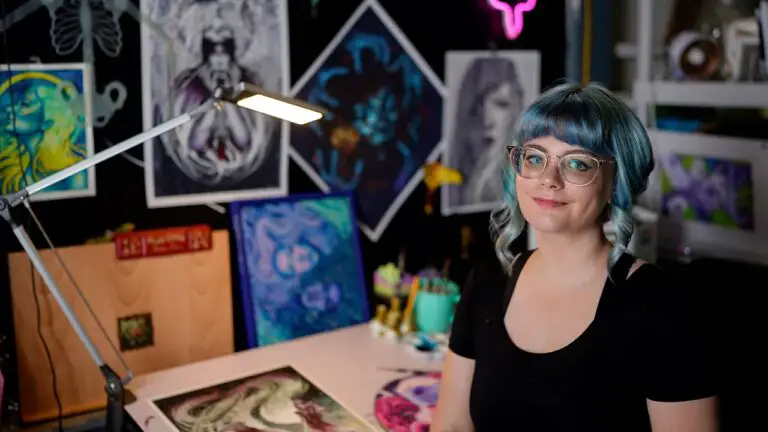Artists Fight Back Against AI Copycats: A Battle for Creative Ownership
Kelly McKernan, known for her bold and vibrant paintings of feminine figures, is facing an unexpected adversary in her artistic journey. It’s not a fellow artist, but artificial intelligence (AI). As McKernan’s work caught the attention of an AI engine generating eerily similar images, she realized her unique style was being replicated without her consent.
McKernan, 37, from Nashville, creates both traditional and digital art. She’s one of three artists who are taking a stand against AI tools that churn out new images using their distinctive styles. The artists believe these AI-generated works could infringe upon their copyrights and threaten their livelihoods.
The lawsuit, awaiting a verdict from a San Francisco judge, has sparked a larger debate about whether AI companies are infringing upon creators’ rights. The artists, including Karla Ortiz and Sarah Andersen, contend that AI systems unfairly compete against original artworks and demand damages and protective measures.
The case centers on a London-based company called Stability AI, which develops text-to-image generators, along with other AI image-generating tools. The artists argue that these AI-generated works are exploiting their creativity and livelihoods, seeking legal action to ensure their artistic contributions are respected.
The legal tussle highlights a broader issue faced by artists, writers, musicians, and creators across different domains. As AI technology advances, the line between human and machine-generated content becomes blurred. The lawsuit could set a precedent for how creators protect their work from being exploited by AI technologies.
While the defendants argue that their AI systems create entirely new images, the artists maintain that their distinct styles are being copied and repurposed without their consent. The case sparks a significant conversation about the implications of AI technology on human creativity and the rights of creators.
The proliferation of AI-generated images is driven by projects like the Large-scale Artificial Intelligence Open Network (LAION), which indexes publicly accessible images. Although these projects operate within legal boundaries, artists remain concerned about the future implications of AI-generated content.
The artists’ fight against AI-generated imitations reveals the challenges faced by creators in a rapidly evolving technological landscape. The outcome of this legal battle could reshape how artists and creators protect their intellectual property rights in a world increasingly influenced by AI.
As AI-generated content becomes more prevalent, the artists’ struggle takes on a larger significance, sparking a debate about the future of creative industries and the place of human creativity in a world dominated by advanced technologies.

